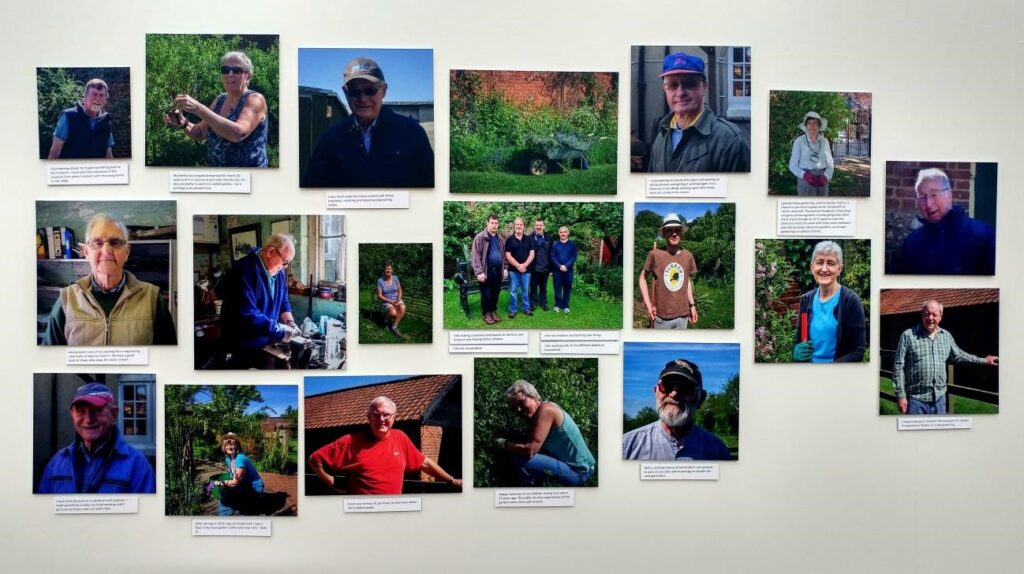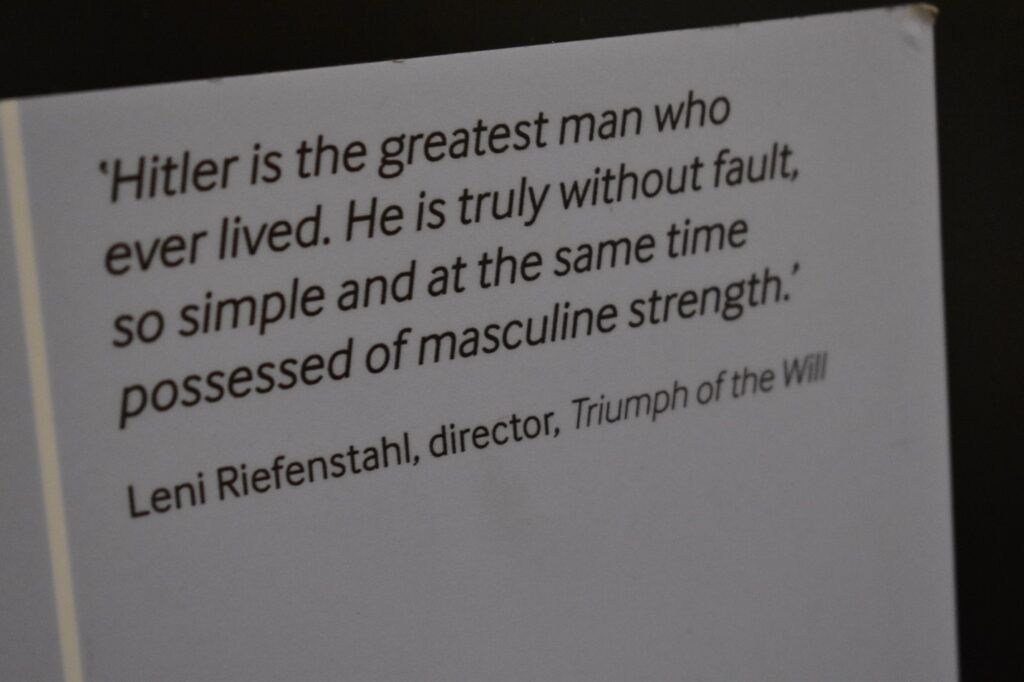#IMD2022 The Power of Museums: Immortalizing Memory (Yohana Frias, Philippines, ITP 2018)
Written by Yohana Frias, Media Production Specialist II, National Museum of the Philippines (ITP 2018)
In celebration of International Museum Day 2022, I wrote this piece as my personal reflection on this year’s theme: the power of museums.
The Power to Make the Ordinary Come Alive

“Welcome to the Workhouse” are the first words that greeted me at the Gressenhall Farm and Workhouse in Dereham, UK. The 1834 Poor Law Amendment Act constitutes that every town and village in the country should send their poor to workhouses. Thus, 835 workhouses were setup in Britain where the desperate work to earn their keep. Most workhouses, however, have poor living conditions.
The entrance alone to the workhouse sets the tone and emotion of the museum – solemn and reflective. Inside, the walls are painted with silhouettes of workers in line. Rooms recreate their quarters and living areas. Throughout the exhibition, the audience is confronted with thought-provoking questions:
“How should we look after poor and vulnerable people?”
“Whose responsibility is it?”
“What do we need to be happy?”
“The way we treat poor and vulnerable in our society tells a lot about us.”
It did not shy away from discussing ideas that may seem uncomfortable to some. It questions our humanity, our value for compassion, and social justice. Instead of giving us definite answers, the exhibition encourages us to think for ourselves.
Gressenhall employs volunteers like most cultural heritage institutions in England. In their museum café, they decorated their walls with images of volunteers along with a short narrative of why they wanted to work in the museum and farmhouse. It meant a great deal for me to see these images, placing importance not just on objects or artifacts but on people and their lives.

Through effective interpretation, the everyday stories of the workhouse came alive. It is one thing to be fascinated by treasures and rare artefacts in grand museums. It is another thing entirely to find wonder in the ordinary and reflect on the raw and unfiltered stories which will stay with me for a long time.
The Power to Safeguard Memory
At the Imperial War Museum, I felt transported into another world. The WWI gallery starts with the greatness of The British Empire through showcasing a map of their territorial conquests. It is a country that will never back down from the war and whose men proudly enlisted in the army while women joined the workforce. Displayed in the exhibition were numerous posters appealing to pride, conscience, and sense of duty:
“Your country needs you!”
“Is your home here? Defend it!”
“Patriotic service for British Women – Women wanted urgently to enrol for the duration of the war in the Women’s Royal Navy Service. Enrol to-day.”
“Men of Britain, will you stand this? 78 Women and Children were killed, and 228 Women and Children were wounded by the German Raiders. Enlist now.”
“Should you stand by while such things go on? Our brave soldiers at the front need your help. Offer your services now.”
The exhibition did a great job making the audience feel the war climate. I understood the pride and pressure of enlisting to help the war effort and was infected by both euphoria and dread of entering military service. Towards the end of the exhibition, reading the casualty reports and passing through the trenches, the horrors of the war was slowly made real to the audience.
“Seven million men marched off to war in August 1914. A million of them lay dead by the end of the year… Neither side achieved a decisive victory… The horrific number of casualties caused by modern weapons came as a terrible shock. War crimes against civilians made the horror worse.”


Suddenly, the war seemed overwhelmingly frightening and wrong. The exhibition made me feel the emotions of a disillusioned soldier. It reminded me of a quote from a film I recently watched entitled, The King’s Man (originally from The Collective Poems of Wilfred Owen):
“If you could hear, at every jolt, the blood
Come gargling from the froth-corrupted lungs
Obscene as cancer, bitter as the cud
Of vile, incurable sores on innocent tongues,
My friend, you would not tell with such high zest
To children ardent for some desperate glory
The old lie: It is sweet and proper to die for one’s country.”
The war was not romanticized. Facts were shown, including similar and conflicting sentiments of the people who went through it. These individual experiences serve as a reflection of the diverse points of views of people at a certain point in time.

I also saw a text at the WWII gallery which implies that history could have been rewritten, if victim’s voices are silenced and if truth is constantly warped:
“Hitler is the greatest man who ever lived. He is truly without fault, so simple and at the same time possessed of masculine strength.”
Our own histories of conflict, prejudice, and hate must serve as a warning for us to always be vigilant and not repeat mistakes of the past. These experiences of struggle are at risk to be slowly erased in time if they are kept unrecognised or undocumented. As a cultural and artistic institution, museums are essential in safeguarding our collective memory to prevent it from being altered or forgotten.
I think that the greatest power of museums lies in its effective storytelling. It has the capacity to narrate stories both grand and mundane. It allows voices to be heard, it facilitates reflection, it confronts the uncomfortable, it gives collective meaning to individual experiences, and most important of all—it immortalizes memory.
Happy International Museum Day!
